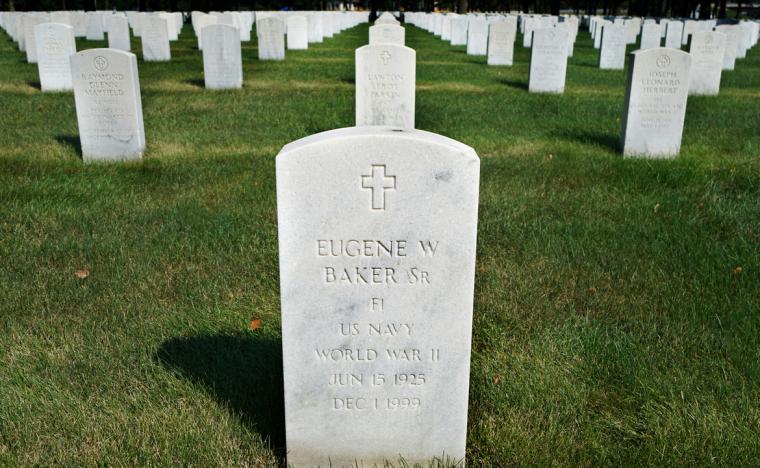
Gene Baker (drawing by Bruce Walters).
Eugene Walker Baker was born in Davenport on June 15, 1925. He attended Davenport High School, where he starred in basketball and track for the Blue Devils. In his senior year, he was an all-state basketball player. First team.
After graduation, he joined the Navy, where he played basketball. And baseball. First for the Ottumwa Naval Air Station and then for the Seahawks of the Iowa Pre-Flight School at the University of Iowa. He would go on to play shortstop for the Kansas City Monarchs of the Negro Leagues and then for minor teams affiliated with the Chicago Cubs.
In 1953 – 10 years after his high school graduation – he was called up to the parent team late in the season. Days later, the Cubs acquired Ernie Banks. They were the first African Americans to play for the Cubs. As Banks would later say, he was signed so Baker could have a roommate on the road, given that no white player could be expected to share a room with a black player.
In their first full year together, they were both named to the Sporting News All-Rookie Team. Baker would be on the All-Star team the next year. A year in which he played every inning.
Baker and Banks would be the Cubs’ middle infielders until Baker was traded to the Pittsburgh Pirates during the 1957 season. Ernie Banks would never get the opportunity to play in the World Series. But Baker did, playing for the Pirates when they won the Series in 1960.
In June of 1961, his major league career ended. Within a week of his release, however, he was named manager of the Pirates Class-D minor league affiliate. With this announcement, Baker became the first African American to manage a major-league-affiliated team. Sadly, the Pirates' general manager Joe L. Brown had to reassure fans that a black man was capable of handling the job. As Brown said, “He is a fine gentleman with outstanding baseball knowledge and experience. We’re confident he will do a fine job in the managerial field.”
Baker guided his team from seventh place in the standings to a third-place finish. He was promoted in 1962 to the Pirates’ Triple-A team in Columbus. The next year, he was the third base coach for the major league team, only two years after playing for the Pirates.

On September 21, 1963, the Pirates were playing the Dodgers in Los Angeles. In the top of the eighth, the Pirates took a 3-2 lead off Sandy Koufax. With the bases loaded, the Pirates batter Bill Virdon was thrown out at first in a close call to end the inning.
The manager, Danny Murtaugh, and the first base coach argued the call and were both ejected. According to Vern Law, a Pirates pitcher, Murtaugh turned to Baker and told him that he was in charge. With this, Baker became the first African American to manage a major league team.
Baker made several moves in the inning-and-a-half that he managed. He brought in a relief pitcher and second reliever, and sent in a pinch-runner and pinch-hitter. When the Pirates failed to score in the top of the ninth, Baker brought in a third reliever who gave up a walk-off home run. The first-place Dodgers won.
"I thought he would have been a great manager because he was a very intelligent, sharp guy," recalled Bill Bryk, a Major League scout for the San Diego Padres and special assistant to their general manager. "He was firm but fair and very approachable. Players could always come and talk to him, whereas a lot of managers in those days were unapproachable."
Baker would remain with the Pirates organization as a minor league manager and then as chief scout in the Midwest, while maintaining his home in Davenport.
In 1999, Gene suffered a heart attack and died a few died later at the Genesis East Medical Center. He is buried in the Rock Island National Cemetery (Section L, Site 16).
As Bill Bryk also stated, "He was one of the best baseball people I've ever met. But more importantly, he was one of the best people I've ever been around."
Bruce Walters is a Professor Emeritus in Art conferred by Western Illinois University.
This is part of an occasional series on famous (or infamous) people buried in cemeteries in the Quad Cities, and their history that is not so well-known today. If there’s a piece of history buried here that you’d like to learn more about, e-mail the location and a brief description to BD-Walters@wiu.edu.








